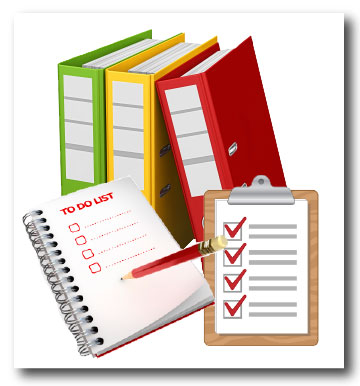Blog
Organizational tips to help your child manage and track assignments
In each new year of school, your kids’ assignments get more and more complicated. In elementary school, they have just one teacher, and stay in one classroom for all their subjects. But by middle and high school, classes have different locations, teachers, and times. Students adjust to new learning conditions almost every hour, and must equip themselves with different materials for each class. Middle schoolers, in particular, face new obstacles bringing class materials home and back. These changes pose major challenges for several reasons. Although adolescent brains develop abstract thinking, they may still be outstripped by sophisticated organizational demands.
Take, for example, your 8th-grader, who comes home on Monday and announces, “I only have spelling homework!” But with a little prodding, you discover three other extensive assignments, due Wednesday, Thursday, and Friday. You feel frustrated, assuming that your child’s oversight is due to stubbornness, laziness, or inattention. In reality, your child may need additional support with organization to rise to the occasion and manage complicated demands.
Even adults can’t remember everything on our to-do list without a little help sometimes. Luckily, there are many ways you can help, and many organizational tools to try! Consider these options and help your children find strategies that work best for them:
- Don’t count on memory. Develop a system to record assignments: Planners and assignment notebooks work well for many students, if used consistently and correctly. Even so, certain planners may suit your child’s needs better than others. To build strong organizational habits, talk to your child about what she needs to record, when she should record, and how best to organize her recordings. Planners with ample space to write, separate boxes for each class, and extra sections for reminders have a lot of versatility.
- Consider study plan apps on your child’s mobile device (or computer): If your digital kid loves using shortcuts and applications, so why not find apps to aid their study plans? Applications like iStudiez Pro, iProcrastinate, MyHomework, and Exam Countdown can help your student manage his to-do list using an intuitive interface. Some apps can be used to store information, notify your student of upcoming responsibilities, or keep a running countdown to tests. There are even apps to help him stay off social media and stay focused on his work! (Try Cold Turkey or SelfControl!)
- Use a calendar: Most planners only show one week at a time, making “long-term” planning hard to visualize. So your child may prefer to supplement her planner with paper or whiteboard calendars. Paper calendars can be placed in the front of binders, which allows your child to see several weeks of assignments at-a-glance during the day. On the other hand, online applications like Google Calendar or Apple’s iCal, can be good fits for students with considerable computer access at school. Digital applications often hold more content, can be edited easily, and send notifications and reminders.
- Use teacher websites to track missing and upcoming assignments: More and more often, schools provide homework websites, or “teacher websites,” where students and parents can check in with overall progress. Common homework applications include Pearson’s Powerschool, Blackboard Learn, or MySchool App. On any given homework website, your child has their own log-in, can confirm daily assignments, access rubrics and directions, view grades, and submit work. So even if your child forgets assignments, you have somewhere to turn to check their progress and provide subtle reminders.
- Organize Materials: You can encourage foresight, calendars, study plans, and more, but if your student loses an assignment in her messy backpack, none of that will matter! Work with your child to determine an organizational strategy for her materials. Color coded pocket-folders, accordion files, or class-specific 3-ring binders are all excellent organizational options. You might even schedule a time each week to clean out her binders together, to keep her paperwork organized and ready for action!
Executive function tutors can help your child determine which assignment trackers fit their needs. They can also coach students to develop their skills in increasingly more sophisticated ways. Eventually, with the help of a parent of tutor, students build habits that stick and have lasting results. Soon your child will come home from school saying, “I only have math homework due tomorrow, but I’m planning to start my lab report due next week.”

